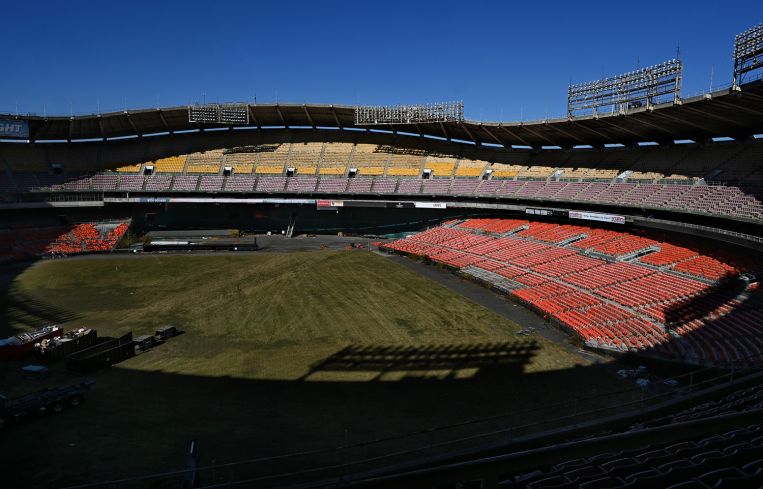Park Service OKs Demolition for DC’s RFK Stadium
By David Holtzman May 2, 2024 5:10 pm
reprints
The National Park Service cleared the way Thursday for Washington, D.C., to demolish Robert F. Kennedy Memorial Stadium, former home of the Washington Commanders football team.
The federal agency said in a statement that its environmental assessment found that the demolition will have no significant impacts on the site or the surrounding area near East Capitol Street and the Anacostia River. While the park service still has to issue a permit for the city to remove the stadium, the assessment’s findings were a critical milestone, according to a WTOP news report
The park service signed the assessment on April 29, following a public review process that began in March 2022. The city owns the stadium, but it sits on land the park service administers.
The U.S. House of Representatives passed a bill in February allowing the city to redevelop the site, which could pave the way for a new stadium for the Commanders. The legislation is pending in the U.S. Senate.
The football team has been playing at Commanders Field, formerly FedEx Field, in Landover, Md., since it departed RFK in 2019. Commanders President Josh Harris told the Washington Business Journal recently that while the team was in talks with Maryland on a permanent home, it is open to returning to D.C. Virginia has also expressed interest in hosting the team.
“We’re excited that the process is moving forward and taking us one step closer to the District putting the land at RFK to a higher and better use that benefits our residents and communities,” Deputy Mayor for Planning and Economic Development Nina Albert said Thursday.
Other sports teams that played in RFK Stadium over the years, included the D.C. United soccer team and baseball’s Washington Nationals. The stadium, which opened in 1961, has not been used since the Commanders left and “has fallen into disrepair,” the park service said in the assessment. Events DC, which operates the facility, has removed hazardous materials, stadium seats and other fixtures, according to the park service’s statement.
The agency approved dismantling the stadium in stages rather than imploding it, given the risks of sound, dust and vibration impacts to nearby properties.



